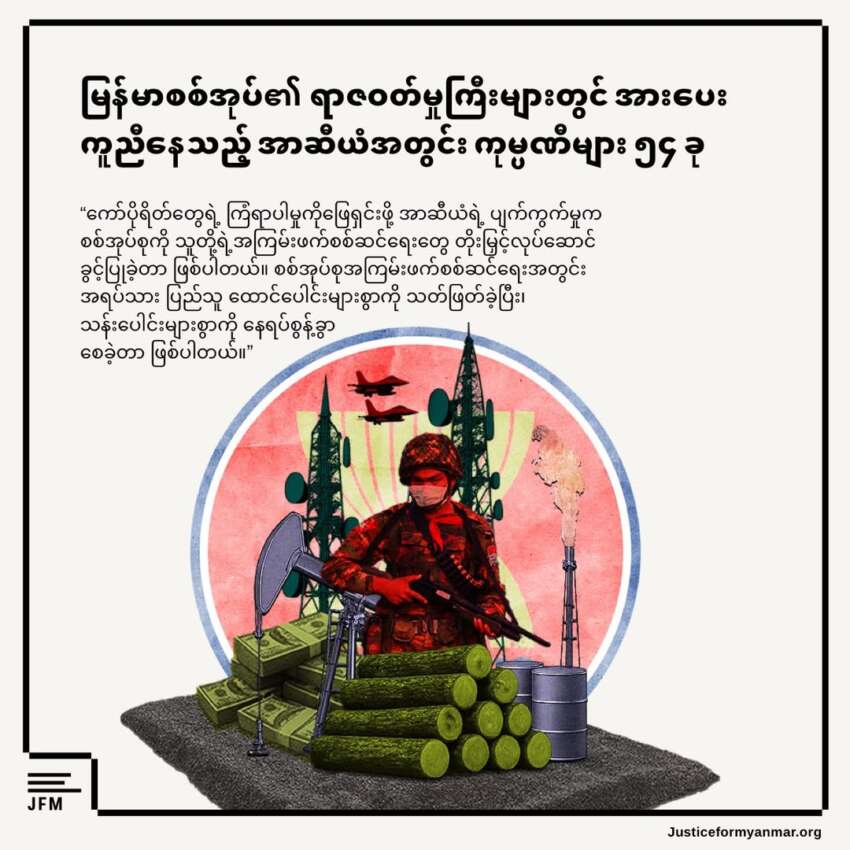
Justice For Myanmar (JFM) has revealed on May 24 that 54 major companies from ASEAN member countries continue to maintain business relationships with Myanmar’s military council. These companies have continued their operations with the military council or their controlled businesses following the February 2021 coup attempt. The companies are providing revenue to the military council through various sectors including oil and natural gas, timber industry, land leasing, and tax payments. Additionally, they are supporting the military council’s acts of violence by supplying aviation fuel, telecommunications, and surveillance technology.
Thailand’s partially state-owned PTTEP company oversees two significant offshore gas projects in Myanmar, with revenues from gas sales funding the military council’s war crimes and crimes against humanity. Malaysia’s oil services company ENRA Group is supporting gas storage and transmission facilities for the Yetagun natural gas project, which generates funds for the military council. Singapore-based Interra Resources sold over three million barrels of oil worth more than US$200 million to the military council in 2021, providing fuel for airstrikes and ground operations targeting civilians.
Vietnam’s state-owned Viettel Global Investment partners with military-owned Myanmar Economic Corporation (MEC) in the Mytel telecommunications network, providing not only tax revenue but also surveillance capabilities to the military council. Singapore timber companies Greenply Alkemal, Natural Forest, and Valency’s Myanmar subsidiaries have purchased timber from the military-controlled Myanmar Timber Enterprise, exporting timber products worth over US$10 million between 2021 and 2023. Malaysian company MAMEE-Double Decker and Thailand’s CP Group operate manufacturing plants in the Pyinmana Industrial Zone, which is controlled by the military-owned Myanmar Economic Holdings Limited.
Singapore’s Krislite Group is developing a real estate project called New Strand on land leased from the military-owned MEC conglomerate. JFM notes that these companies’ continued operations with the military council are possible due to ASEAN’s failure to stop the flow of weapons, aviation fuel, and tax revenue to the military council. JFM warns that ASEAN businesses must cut all payments to the terrorist military council and stop aviation fuel sales. These aviation fuel supplies have enabled brutal airstrikes, including one that killed 22 schoolchildren and 2 teachers at a school in Sagaing Region. JFM spokesperson Ma Ratana Maung stated that ASEAN’s failure to address corporate complicity has allowed the military council to escalate their violent operations, resulting in thousands of civilian deaths and millions of displaced people. She emphasized that it’s time for ASEAN to take action, respect Myanmar people’s rights and democratic aspirations, and end complicity with the Myanmar military council.



